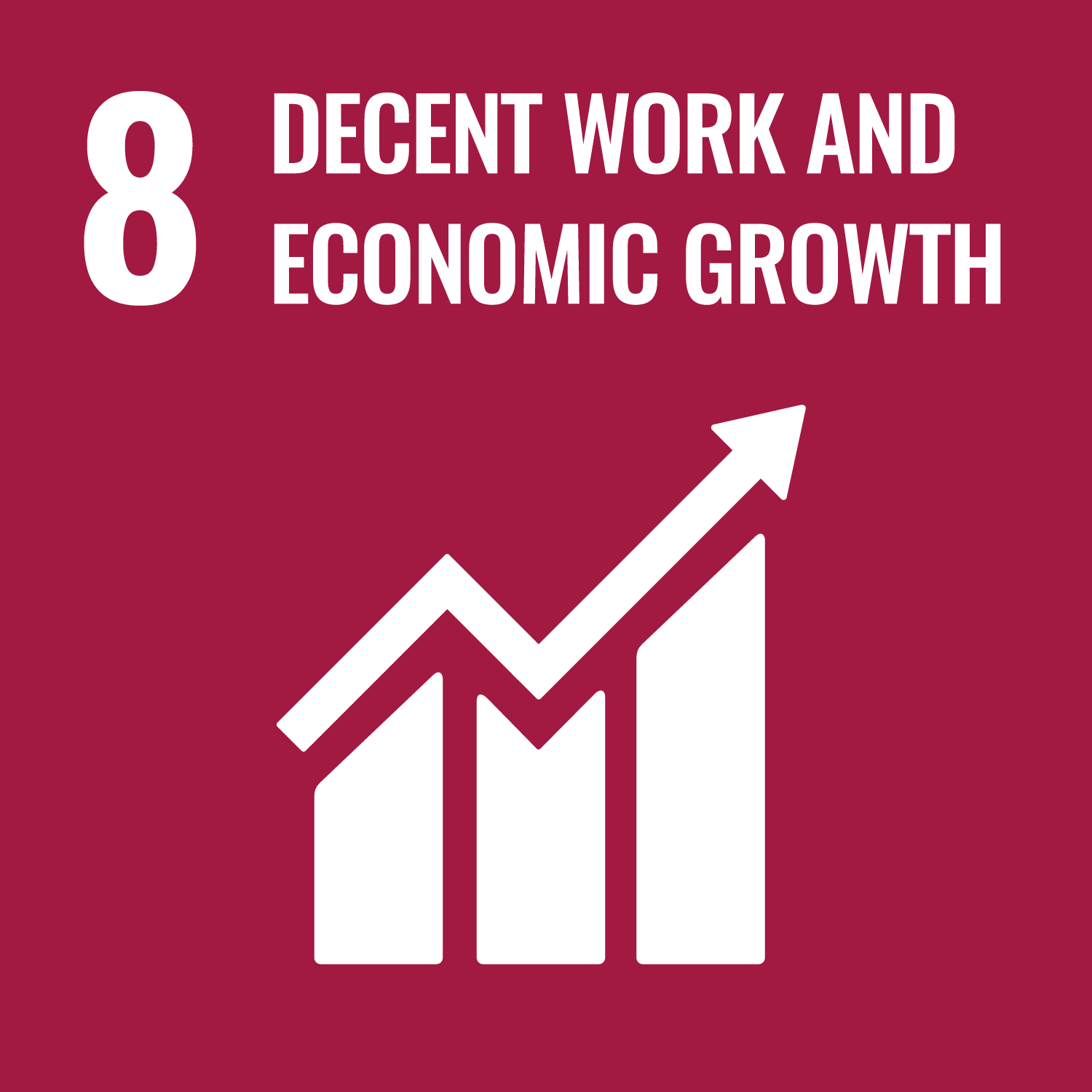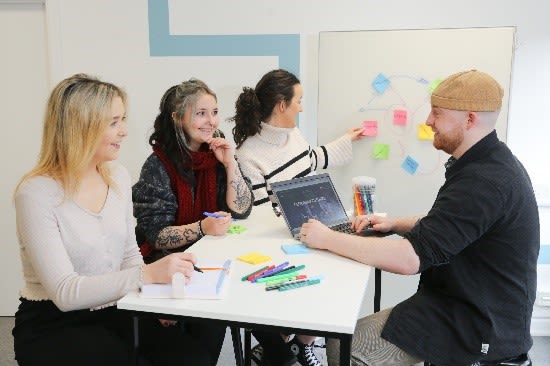Professor Jonathan Levie
Professor of Entrepreneurship & Regional Development
J.E. Cairnes School of Business and Economics, University of Galway



In 2019, with Professor Esther Tippmann, Jonathan co-founded the Centre for Entrepreneurial Growth & Scaling (CEGS) at the J.E. Cairnes School of Business & Economics. This Centre focuses on research and outreach on scale-ups, scalability and scaling of entrepreneurial businesses. Novel solutions to society's grand challenges as identified by the SDGs are often a threat to industry incumbents, and it is therefore up to new entrants to implement them. Yet scaling a young venture to address a global challenge is a very difficult task. The goal of CEGS is to better understand the nature of business scaling and pass this learning on to scaling managers to increase their chances of success.
Jonathan has been researching and teaching entrepreneurial growth and scaling for over 40 years. He was associate coordinator of Global Entrepreneurship Monitor (GEM) in its founding year (1999) and has served as an elected member of the board of GEM's governing body, the Global Entrepreneurship Research Association (GERA). He was a member of GERA's Research and Innovation Committee from 2012 to 2021 and project-managed grants for GERA from the EC DG Employment, Social Affairs & Inclusion and from the EC DG Education and Culture. While at Strathclyde, he co-directed GEM in the UK with Professor Mark Hart of Aston Business School and served as Theme Leader on Research Theme 1 (Ambition and Growth) at the UK's Enterprise Research Centre.
Jonathan's work contributes to these SDGs

In 2020, Jonathan was the proposal lead for a successful €7.5 million university bid for funding under the Higher Education Authority's Human Capital Initiative. The programme, now known as Designing Futures, integrates student success coaching, professional skills and transdisciplinary learning into the undergraduate student experience across the university.
Jonathan has served as a member of an EC DG Employment expert panel on entrepreneurship and social exclusion and an EC DG Education and Culture expert panel on data and indicators on entrepreneurial learning. He was the Scottish universities' representative on Scotland's MIT Regional Entrepreneurship Acceleration Program (REAP) core team, which engaged stakeholders nationwide in a collective impact approach to enhancing the innovation-based entrepreneurship ecosystem in Scotland. He now leads the Entrepreneurial Ecosystems Research Stream of Atlantic Futures, a research project focused on the economic development of the west of Ireland and Northern Ireland from Derry to Limerick.
Key Target: 8.3 Promote policies to support job creation and growing enterprises

Teaching

Entrepreneurial Venture Development
The aim of this elective is to introduce students to the multifaceted environment of entrepreneurial venture creation and development. The module will examine what it is like to be an entrepreneur and the different approaches to becoming an entrepreneur that may be employed.
Key Target: 4.4 By 2030, substantially increase the number of youth and adults who have relevant skills, including technical and vocational skills, for employment, decent jobs and entrepreneurship

Entrepreneurial Finance
The aim of this class is to enable students to experience an entrepreneurial perspective on financing of new and growing ventures. In addition to the distinct intellectual approach, rooted in real options theory, the course aims to transmit an understanding of cash-flow management in young ventures, viable financial structures for young ventures, sources of finance for young ventures and how to access these, and exit/harvest strategies.
Supporting Target: 4.4 By 2030, substantially increase the number of youth and adults who have relevant skills, including technical and vocational skills, for employment, decent jobs and entrepreneurship

Founder Selling
The aim of this class is to enable students to become proficient in founder selling: communicating their vision for the new business, understanding how stakeholders (not just customers) value their new offering, and making their first sales. Founder selling is what you do when you need to sell and you have no brand, no marketing backup, no track record, no reference customers and you are not yet confident that your product or service even works. Entrepreneurs are often unprepared for this challenge.
Key Target: 4.4 By 2030, substantially increase the number of youth and adults who have relevant skills, including technical and vocational skills, for employment, decent jobs and entrepreneurship

Entrepreneurship & Innovation
This MBA elective explores how managers can create and maintain adaptable, resilient organisations in a rapidly changing environment through innovation and entrepreneurship. Students will enhance their entrepreneurial skills, including opportunity identification, accessing resources, championing ventures, decision-making in uncertainty, and leading venture teams.
Supporting Target: 4.4 By 2030, substantially increase the number of youth and adults who have relevant skills, including technical and vocational skills, for employment, decent jobs and entrepreneurship
Engagement
Jonathan and the Centre for Entrepreneurial Growth & Scaling (CEGS) tackle the challenge of supporting the growth and scaling of indigenous and foreign-owned businesses. They support business scaling by identifying the key challenges in attaining successful scaling and providing novel insights into how these can be managed. They do this by engaging in scaling research and translating these insights into practice through CEGS outreach programmes to accelerate the scaling of businesses.
Scaling Masterclasses and Train the Trainer events equip founders and leaders of scale-ups and scale-up advisors with the latest research-based tools and competencies required to successfully scale their businesses.
Structured facilitation of peer learning, where CEOs and functional heads learn with and from their peers in a managed context, generates deeper learning than unstructured contexts such as random meetups at networking events. Actively listening to peers who are on the same journey can be both revealing and comforting for top managers in scaling businesses, but the topic needs to be relevant and the “so what” question needs to be addressed.
The process brings together management teams in non-competing businesses, either face to face or virtually, to learn scaling together and develop their own solutions to their own challenges in an approach that is more “guide on the side” than “sage on the stage”.
The secret sauce is deceptively simple: one-pager exercises, co-created with managers over decades of research and training, that help managers to uncover underlying issues in relation to the problems they face and devise practical strategies to address them.

Direct impact SDG Targets
1.A - Mobilize resources to implement policies to end poverty
1.B - Create pro-poor and gender-sensitive policy frameworks
4.4 - Increase the number of people with relevant skills for financial success
4.7 - Education for sustainable development and global citizenship
5.1 - End discrimination against women and girls
5.A - Equal rights to economic resources, property ownership and financial services
8.1 - Sustainable economic growth
8.2 - Diversify, innovate and upgrade for economic productivity
8.3 - Promote policies to support job creation and growing enterprises
8.4 - Improve resource efficiency in consumption and production
9.2 - Promote inclusive and sustainable industrialization
9.3 - Increase access to financial services and markets
9.4 - Upgrade all industries and infrastructures for sustainability
9.B - Support domestic technology development and industrial diversification
10.5 - Improved regulation of global financial markets and institutions
10.7 - Responsible and well-managed migration policies
10.A - Special and differential treatment for developing countries
12.2 - Sustainable management and use of natural resources
12.5 - Substantially reduce waste generation
12.6 - Encourage companies to adopt sustainable practices and sustainability reporting
13.3 - Build knowledge and capacity to meet climate change
13.B - Promote mechanisms to raise capacity for planning and management
16.5 - Substantially reduce corruption and bribery
16.6 - Develop effective, accountable and transparent institutions
17.6 - Knowledge sharing and cooperation for access to science, technology and innovation
17.11 - Increase the exports of developing countries
17.18 - Enhance availability of reliable data
17.19 - Further develop measurements of progress
Indirect impact
1.4 - Equal rights to ownership, basic services, technology and economic resources
5.5 - Ensure full participation in leadership and decision-making

With Sharon Ballard, a US-based entrepreneur, Jonathan developed Supercoach Entrepreneurial Training, a set of coaching tools and techniques for coaching first-time entrepreneurs. He has coached entrepreneurs and entrepreneurship coaches in a wide range of sectors from agri-tourism to high technology in the US, Europe, the Middle East and East Asia. More recently, with Morven McLean, a colleague in Strathclyde Business School's Centre for Corporate Connections, he developed the Growth Advantage Programme for established entrepreneurs who wish to grow their business. This programme has recently been fully endorsed by the Scaleup Institute following a detailed impact assessment.

Research

Featured Publications
|
Reference |
SDGs |
|---|---|
|
Bohan, S., Tippmann, E., Levie, J., Igoe, J. and Bowers, B. (2023). What is scaling? Journal of Business Venturing, 39(1), 106355. |
8 |
|
Sternberg, R., Elo, M., Levie, J. and Amorós, J. E. eds. (2023). Research Handbook on Transnational Diaspora Entrepreneurship. Edward Elgar Publishing. |
8.3. 8.5; 10.3, 10.7 |
|
Mwaura, S., Sahasranamam, S., Hart, M., Bonner, K., Prashar, N., Ri, A. and Levie, J. (2023). Global Entrepreneurship Monitor: Scotland Report 2022/23. |
8.3, 8.1 |
|
Martiarena, A., Levie, J., Marlow, S., Hart, M. and Bonner, K. (2022). A "deviant men" theory of business expectations in nascent entrepreneurs. Small Business Economics. |
1B; 5.1; 8 |
|
Gimmon, E. and Levie, J. (2021). Early Indicators of Very Long Term Venture Performance: A 20 Year Panel Study. Academy of Management Discoveries, 7(2), 203-224. |
8 |
|
Levie, J. and Mwaura, S. (2021). What Does GEM Say About Minority Entrepreneurship? In Cooney, T. ed., The Palgrave Handbook of Minority Entrepreneurship. Cham, Switzerland: Palgrave Macmillan, 33-56. |
1.4; 5.A; 9.2; 10.7 |
|
Murzacheva, E., Sahasranamam, S. and Levie, J. (2020). Doubly Disadvantaged: Gender, Spatially Concentrated Deprivation and Nascent Entrepreneurial Activity. European Management Review, 17(3), 669-685. |
1; 5; 8 |
|
Murzacheva, E. and Levie, J. (2020). Entrepreneurial finance journeys: Embeddedness and the finance escalator. Venture Capital, 22(2), 185-214. |
9 |
|
Ali, A., Kelley, D. J. and Levie, J. (2020). Market-driven entrepreneurship and institutions. Journal of Business Research, 113117-113128. |
8 |
|
Simmons, S. A., Wiklund, J., Levie, J. and 2 more (...) (2019). Gender gaps and reentry into entrepreneurial ecosystems after business failure. Small Business Economics, 53(2), 517-531. |
5 |
|
Autio, E. and Levie, J. (2017). Management of entrepreneurial ecosystems. In Ahmetoglu, G., Chamorro-Premuzic, T., Klinger, B. and Karcisky, T. eds., The Wiley Handbook of Entrepreneurship, J. Wiley & Sons, 423-449. |
8; 15; 16 |
|
Saukkonen, J., Nukari, J., Ballard, S. and 1 more (...) (2016). Start-up entrepreneurs and university students in a co-learning mode: Learning effects of a collaborative entrepreneurial coaching programme. Industry and Higher Education, 30(3), 224-238. |
4; 8 |
|
Simmons, S. A., Wiklund, J. and Levie, J. (2014). Stigma and business failure: Implications for entrepreneurs' career choices. Small Business Economics, 42(3), 485-505. |
8.3, 8.1; 9.3, 9.5 |
|
Levie, J. (2014). The university is the classroom: Teaching and learning technology commercialization at a technological university. Journal of Technology Transfer, 39(5), 793-808. |
4 |
|
Levie, J., Autio, E., Acs, Z. and 1 more (...) (2014). Global entrepreneurship and institutions: An introduction. Small Business Economics, 42(3), 437-444. |
8 |
|
Amorós, J. E., Bosma, N. and Levie, J. (2013). Ten years of Global Entrepreneurship Monitor: Accomplishments and prospects. International Journal of Entrepreneurial Venturing, 5(2), 120-152. |
8 |
|
Levie, J. and Hart, M. (2013). The contribution of migrants and ethnic minorities to entrepreneurship in the United Kingdom. In The Dynamics of Entrepreneurship: Evidence from Global Entrepreneurship Monitor Data, 101-123. |
8.3. 8.5; 10.3, 10.7 |
|
Levie, J. and Autio, E. (2011) Regulatory Burden, Rule of Law, and Strategic Entry of Entrepreneurs: An international panel study. Journal of Management Studies, 48(6), 1392-1419. |
5.A; 8.3; 16.5, 16.6 |
|
Levie, J. and Hart, M. (2011). Business and social entrepreneurs in the UK: Gender, context and commitment. International Journal of Gender and Entrepreneurship, 3(3), 200-217. |
8.3, 8.1; 9.3 |
|
Bosma, N., Acs, Z. J., Autio, E., Coduras, A. and Levie, J. (2008). Global entrepreneurship monitor. Executive report, 125. |
8.3, 8.1 |
|
Levie, J. (2007). Immigration, in-migration, ethnicity and entrepreneurship in the United Kingdom. Small Business Economics, 28, 143-169. |
8.3, 8.1; 10.7, 10.2; 9.3 |
